Position Paper
Digital Therapeutics: the Italian landscape and the contribution of EIT Health Italian Partners for a harmonized context

The case of Italy
Authors: InnoStars and Italian partners plus working group formed by Chiara Maiorino, Salvatore Panico, Marco Aiello and Oscar MayoraThe technological evolution, accelerated by the challenges posed by COVID-19, has pushed the frontiers of medicine forward to embrace diagnostic and intervention solutions unthinkable until a few years ago. The use of Digital Therapeutics (DTx) represents one of the most promising tools for managing an increasingly mass model of medicine, which wants to maintain high levels of quality, adherence to data and which hope to be more in line with the needs of patients. Based on this assumption, the EIT Health Italia partnership and the InnoStars network have decided to stimulate a discussion about the potentialities and difficulties of introducing DTx in Europe and especially in Italy, confronting actors from the world of research, academics, industry and with patients, obtaining information on the state of the art of this sector in the country and coming to formulate recommendations that could allow effective and efficient development of this branch of Digital Health in compliance with the different needs in the field.
DTx in Europe: EU framework and national experiences
Digital Therapeutics (DTx) are defined as technologies that «offer therapeutic interventions guided by high-quality software programs, based on scientific evidence obtained through methodologically rigorous and confirmatory clinical trials, to prevent, manage or treat a broad spectrum of physical, mental and behavioral conditions».
Since May 2021, DTx are considered Medical Devices subject to the rules provided by the EU Regulation for Medical Devices 2017/745. However there is no uniform regulation of DTx, their adoption, their marketing for health purposes, and their relationship with reimbursements by public health services at the level of individual countries of the Union.
A regulatory model that has come to the attention of the leading players in the sector at the European level is the German one which provides a detailed discipline for DTx and their use. In 2019, the German Digital Health Care Act (Digitale-Versorgung-Gesetz, DVG) introduced a new market access approach for digital health apps and platforms, aiming to separate digital health solutions with proven clinical benefits from the more than 400,000 other health and wellness apps available on the market. Since May 2020 it has been possible to register digital health applications through a standardized procedure (Fast Track Process), accessible from an online platform that is updated weekly. Currently, the DiGA (Digital Health Application) Fast Track process targets Class I and II low- and medium-risk medical devices, but to include higher-risk medical devices, as required by the EU regulation, it will soon need to be updated. Approved DTx can be prescribed by doctors and reimbursed by taxpayers. Although similar procedures for evaluating digital health solutions already existed in other European countries, for example, Belgium and the United Kingdom, the regulatory framework adopted in Germany was considered a benchmark by many.
The German DiGA has attracted great interest in Europe. Several European countries are considering developing a similar process to enable the widespread adoption of digital health solutions within their national health systems. France is the most active member state at the moment and is already working towards adopting a process similar to the German one, that is expected to be launched in early 2023. These national experiences have accompanied and informed the process of updating the European legislation itself, which could soon see new developments in the field of DTx and Digital Health in general.
Given the role of data and their management in the use of these applications, it is worth recalling that the EU has long been devoting significant attention to its own data strategy, for example by the recent EU Data Act, which was presented on 23 February 2022 and which it should play a key role in digital transformation in line with the 2030 digital goals. Another driver for DTx could be the upcoming European Health Data Space (EHDS), which gives developers better access to the data needed to train algorithms applied in AI-powered health apps.
A plural approach to DTx in Italy
The commitment of the EIT Health Italia partnership and the InnoStars network
EIT Health is one of the nine Knowledge Innovation Communities (KICs) of the European Institute of Innovation and Technology (EIT), an EU body and an official partnership under the third pillar of Horizon Europe. Established in 2015 to address the challenges of ‘health, demographic change, and well-being’ within the EU, EIT Health has approximately 280 partner organizations and institutions from academia, business, research, and healthcare, working in synergy to promote health innovation and thus the health and well-being of European citizens.
EIT Health InnoStars is one of the eight geographical areas of EIT Health. It covers half of Europe, including Hungary, Italy, Poland, and Portugal, as well as other regions included in the EIT Regional Innovation Scheme (RIS): Croatia, Czechia, Estonia, Greece, Latvia, Lithuania, Slovakia, Slovenia and Romania. It brings together 25 core and associated partners from research, academia and business.
In Italy, EIT Health is represented by eight partners, including academic institutions, research centers and companies (University of Naples Federico II, University of Turin, Italian Institute of Technology, Synlab Italia, Synlab SDN, Bio Check Up, Fondazione Bruno Kessler and ART-ER) that contribute to the implementation of innovation, education and business projects in the health sector, promoted by EIT Health.
With the main aim of contributing to the discussion on a possible harmonisation of the different European contexts in the field of Digital Health and in particular concerning the use of DTx, the EIT Health Italia partnership and the InnoStars network held a round table with some of the most important national stakeholders in the month of October 2022. The round table, entitled “Digital Therapeutics: where are we? ” saw among its participants: Gennaro Piccialli, Director – CESTEV University of Naples Federico II; Ferenc Pongracz, Regional Director – EIT Health InnoStars; Marco Aiello, member of the Supervisory Board – EIT Health InnoStars; Chiara Maiorino, Ecosystem Lead for Italy – EIT Health InnoStars; Ilaria Leggeri, Head of Public Affairs – EIT Health; Fidelia Cascini, Digital Health Expert at the Italian Ministry of Health; Giuseppe Recchia, Co-founder & CEO of daVi DigitalMedicine, Alberta Spreafico, Global Head of Digital Health Innovation & Strategy – Healthware Group and Sabrina Grigolo, EUPATI Project Patient Expert.
The approach followed was that of the “Knowledge Triangle of Integration” (collaboration between industrial, academia and research sectors), to foster the debate related to DTx and conceive recommendations that could take into account the complexity of the subject and the different interests in the field.
One of the most discussed issues, against the background of actual opportunities for access to the digital health market in Italy, was that of reimbursement by the National Health Service (Servizio Sanitario Nazionale SSN) of digital solutions. A problem, which is deeply linked to that of the state of the Italian regulatory framework on DTx, especially with regard to the authorization of DTx, and the implementation of these tools in the health system. We also focused on how much the national legislative framework, with reference for example to the discipline of data management, can favor or hinder the entry and development of DTx in the country. With this in mind, experts were also asked to indicate – in consideration of their privileged points of view – what solutions could be adopted by the Legislator to improve the use of DTx in Italy. Great attention was paid to the issue of digital literacy both regarding the health professionals and the patients, in close connection with the point of equitable and widespread access to digital therapy solutions. Naturally, stakeholders suggested solutions to develop new DTx that could offer better treatment opportunities to patients, in compliance with their needs. Ethical and social issues related to these innovations were also discussed. Finally, participants were asked to indicate some Italian case studies centered on DTx.
Italy and DTx: the current overview
To understand the entire scenario and regulatory landscape at the national level, it is necessary to analyze different legal acts concerning digitization in general, data protection rules and regional administrative-legal arrangements. In fact, each of the 20 regions individually defines and manages the implementation of digital health, leading to significant regional gaps and regulatory inconsistencies.
DTx in Italy are aligned with Regulation (EU) 2017/745 on medical devices. This means that DTx should provide evidence-based therapeutic interventions to prevent, manage, or treat a medical disorder or disease. However, there are no specific rules on authorisation and reimbursement.
Those who want to offer DTx-related solutions on the national market must also follow data protection regulations and cybersecurity regulations. It is indeed one of Europe’s most restrictive privacy frameworks based on the Digital Administration Code (DAC), which deals with data security and other general and relevant aspects such as citizens’ and businesses’ rights to public administration, rules for digital signatures and legal validity, contracts, payments and accounting acts, as well as the development, acquisition and reuse of the software. Due to this complex regulation which is more stringent than GDPR alone, data can hardly be processed without the patient’s consent. This is an obstacle to DTx’s growth as their development requires data access to ensure customization and improvement of their functionality.
In February 2019, the Ministry of Health – in collaboration with the Italian Medicines Agency (AIFA), Agenas – Italian Agency for Regional Healthcare Services and representatives of the regions – published the National Health Technology Assessment Plan for Medical Devices. However, the plan did not cover mobile healthcare applications or platforms that could qualify as DTx.
During the COVID-19 pandemic, digital health technologies experienced a significant acceleration. Health and digital health are among the main pillars of the Italian Recovery Plan (PNRR), with a budget of 15.63 billion euros. It aims to strengthen community-based prevention and care, ensure equal access to treatment and healthcare services, and promote innovation and digitalisation within the Italian National Health Service.
It is in this evolutionary landscape that an Italian digital health plan has recently been introduced within the national strategic agenda for digital growth (Strategia per la crescita Digitale) and the three-year national IT (Information Technology) plan in the Public Administration, indicating intervention actions dedicated to the digital health ecosystem and the main solutions aimed at improving health services, limiting waste and inefficiencies, improving the cost-quality ratio of health services, reducing gaps between territories. However, this digital health plan, which includes some services such as Single Health Record, Single Booking Center, Health Card, is still poorly defined and does not introduce any information on the use and implementation of digital Therapeutics (DTx) in the Italian health system (SSN).
Faced with the need to improve the regulatory background and not only in the sector, several bodies have started a dialogue with the Italian Ministry of Health to contribute to the development of an implementation policy for the use of DTx and, therefore, to the definition of a reimbursement pathway for the national SSN. To fuel this comparison, for example, in 2021, the Smith Kline Foundation, in collaboration with a network of national experts, published an in-depth study dedicated to digital Therapeutics and the possible beneficial use by the SSN (Digital Therapeutics, an opportunity for Italy).
However, despite the insightful debate, the first cases of DTx and some studies that triggered the discussion on the use of DTx in Italy, there are no DTx marketed, used or reimbursed to date. Some tools are currently in the development phase:
- A DTx for the treatment of Chronic Insomnia, developed by daVi Digital Medicine srl, in collaboration with Cloud-R, Milan and the University of Verona. This tool, which is still in the research phase, is a digital application that has therapeutic purposes, in association or combination with a drug or dietary supplement based on melatonin, for the treatment of chronic insomnia;
- A DTx for the treatment of arterial hypertension, developed by daVi Digital Medicine srl, in collaboration with Polifarma Spa. This tool, which is still in the research phase, is an application of so-called Digital Self-Management, Education & Support DSMES, to be used in association or combination with an antihypertensive drug, in order to allow better management of arterial hypertension;
- AuReha, developed by DigitalRehab Ltd.: a Digital Therapeutic Device for neuromotor rehabilitation, will make possible innovative models of remote rehabilitation, where it will no longer be necessary for the patient to reach the rehabilitation centre to access therapy with the required continuity.
Many other digital solutions proposed by innovative Italian start-ups could be counted among DTx; however, the knowledge of these technologies and the distinction with other medical devices are still so blurred that it is impossible to indicate which digital solutions will actually be considered as DTx in the near future.
Although it is not a digital therapeutic tool, it is important to mention the training course for “Patient expert in digital technologies for health.” Promoted by UnitelmaSapienza in collaboration with the EUPATI program (supported by EIT Health) and the Smith Kline Foundation, the course aims to encourage the development of patients who are experts in digital health technologies, with the ultimate goal of improving – through the contribution of the patient expert in digital therapy – the quality of the same technology and its use.
DTx in Italy: prospects and recommendations
Digital health, including the use of DTx, is an essential step in managing chronic diseases, also bearing in mind the reform of community-based care that is to be implemented under the PNRR.
In light of the information presented so far and the results of the round table promoted by the EIT Health Italia partnership and the InnoStars network, several recommendations can be formulated and could offer a solid starting point for the future of this technological revolution in the country. In the first instance a high awareness on the part of all the actors in the field, starting from the political leaders, is to be developed. To this end, EIT Health Italia and the Innostars network have made and will make available to stakeholders all their experience and willingness to pursue possible initiatives for widespread knowledge on the issue.
«The Italian partners of the EIT Health network – explains Chiara Maiorino, EIT Health InnoStars Ecosystem Lead for Italy – a network that incorporates the indications on the subject of the European Union, are ready to contribute concretely to the development of social and industrial policies aimed at the use of digital therapeutic technologies. They, therefore, propose themselves as a platform for connecting the Italian ecosystem, operating in the health sector, and the European one, making their knowledge and experience available and collaborating with the main national stakeholders» And she adds: «Only through the development of shared programs, between European and national bodies, through the education in the use of these new technologies, through the creation and support of new companies and through opportunities for co-financing innovative projects involving digital Therapeutics, it will be possible to contribute effectively to the adoption of these technologies by the national health system, and therefore to improve the services offered to citizens and patients.»
Meetings such as the round table of October 2022 or other forms of exchange that may be deemed appropriate, should be pursued with continuity and with the involvement of all the actors, including collective ones, who can offer a contribution of data and sensitivity. The patients and their representatives are to be listened to without forgetting, of course, the world of education, professions, and research.
Once again, we underline the centrality of the so-called “Knowledge Triangle of Integration” method and its practical implications, aimed at addressing not only the challenge of the use of DTx, relevant here, but also (to take into account a broader context) that of the digital economy, concerning which Italy ranks 18th out of 27 EU Member States in the 2022 edition of the Digitization Index of the economy and company (DESI).
«The interaction between education, research and innovation is essential – remarks Marco Aiello, member of the Supervisory Board – EIT Health InnoStars, Medical Imaging researcher at IRCCS Synlab SDN, – The dialectic between these three realities, to which the world of patients and regulatory bodies are to be added, was the reference point of the round table and the founding value of EIT Health.»
A point that allowed us to develop some more detailed recommendations that can provide a targeted field of reflection and intervention in the short term, favoring the progress of DTx in the country. Specifically, actions aimed at the following objectives are desired:
• Clarity in terminology:
To properly address the discussion on the subject, it is necessary to promote clarity in the taxonomy relating to DTx. Especially the differences between Digital Health, Digital Medicine and Digital Therapeutics are to be clarified.
Digital Health refers to software and hardware solutions with objectives related to lifestyles, well-being and support for clinical activities. To be distributed, they do not require clinical trials, nor regulatory supervision from any type of national or international body.
Digital Medicine refers to software and hardware products to measure and/or intervene directly on health. They require clinical efficacy trials and are typically classified as medical devices. They include several products that can provide clinical measurements and deliver interventions, support health research and medicine practice in the broadest sense, including treatment, recovery, disease prevention and health promotion for individuals and populations.
Finally, Digital Therapeutics refers to software that provides therapeutic interventions to prevent, manage or treat a medical disorder or disease. Clinical trials and Real World Evidence (RWE) results are required. Clinical trials verify the effectiveness of a treatment within a trial in a controlled setting (so the effectiveness outside this setting remains doubtful). RWE, on the other hand, analyzes real-world data, i.e. the effects of post-market therapeutic intervention, in the daily use of the digital solution. Digital Therapeutics are classified as medical devices and must be evaluated, approved or certified by appropriate regulatory bodies to support risk, efficacy and intended use claims.
This distinction is still little known by ordinary citizens and, unfortunately, by some professionals in the sector;
• Regulatory update and public health:
Addressing the challenges posed by this rapidly evolving sector requires developing specific legislation for digital health based on sound scientific evidence.
The new discipline should design a new regulatory process, identifying the limitations of the few randomized clinical trials (RCTs) that have included DTx, to overcome them and provide guidance on generating solid evidence for these tools as done for drugs (pharmaceutical and biotechnological Therapeutics). The new process could take into account the German regulation and the use of a specific internet platform for authorizations. However, it should be noted that some experts believe that a more efficient solution can be imagined that also considers national specificities.
In any case, the peculiarities of these tools and their development should be considered. Peculiarities that cannot but reverberate on the approval processes: «there is a need to adapt the DTx approval procedures to the speed of their development – underlines Aiello – the “in-silico” technologies are linked to a greater speed of development and validation with respect to pharmaceutical technologies; we must be aware, therefore, that without sacrificing the necessary prudence in the adoption of new medical devices, the time required for the necessary authorizations should not exceed the time of development, becoming an obstacle to the implementation and diffusion of DTx.» This would not mean in any case lowering the level of evaluation of the quality and safety of approved instruments that indeed – as Salvatore Panico, Full Professor of Internal Medicine at the School of Medicine of the University of Naples Federico II, points out – «DTx as drugs must follow a validation path that allows us to know their efficacy and their safety (from the initial phase of product definition to trials controlled and randomized).» But «from the analysis of the scientific literature – adds Panico – and from the experiences reported in the real world it is clear that we are still in an initial phase of constitution of a body of knowledge that can be used widely. In terms of perspective, this is the key objective to be formulated and on which the medical world and that of innovative research must converge their interest».
The new legislation should also take into account the effects of data protection legislation on the use of DTx and, once structured would be functional to the inclusion of DTx in the existing regulatory framework for health technology assessment (HTA) to make them part of public health interventions and reimbursable;
• DTx in care and digital literacy pathways:
It is essential to include digital health tools, and therefore DTx, in the care pathways (Diagnostic-Therapeutic Care Pathways), defining the correct phases to insert these tools and how to implement this insertion.
«Currently – recalls Oscar Mayora, head of the Digital Health Lab at Fondazione Bruno Kessler – healthcare systems are struggling to provide a series of services due to personnel and overall resources limitations. Services such as the provisioning of psychological support in different disease domains (i.e. oncology, etc), do not manage to intercept people at moderate risk of depression or anxiety, but manage to treat in the best cases, only people that may suffer of more critical conditions. The uprise of DTx can enable the use of applications to provide basic support to patients (i.e. psychological support during preparation to chemotherapy) and to intercept those patients with need of more psychological assistance.»
A possible best practice to follow in this sense could be precisely the one that emerges from Bruno Kessler’s projects: «At Fondazione Bruno Kessler (FBK) Center for Health and Wellbeing – continues Mayora – we are following the approach above to define, test and deliver DTx solutions on topics related to prevention (i.e. Salute+ Project) and to clinical research (i.e. Flagship project on anxiety management during Breast Cancer therapy). At FBK we believe that the support of DTx solutions to treatment of clinical conditions could find a good opportunity in the context of private-public ecosystems. In Trentino we created the Competence Center TrentinoSalute4.0 as an ecosystem putting together the Policy Maker (Autonomous Province of Trento), the Healthcare Regional Trust (APSS) and the Research Actor in digital health (FBK) to design, develop, test and put into operation the DTx approach to healthcare».
Throughout the process of DTx development, the patient will have to be considered and the reasons of his representatives will be listened to. The patient should be looked at not only as a mere user, but as an operator himself, who will need correct digital literacy and full and equal access to these tools. «The reference – specifies Panico – is to the inequalities of use of digital therapeutics first of all due to the low digital literacy in sectors of the general population, for example, low-educated individuals or the elderly. Less than 2% of digital experimentation initiatives of Therapeutics target older people, precisely those individuals who contribute most to the burden of chronic-degenerative diseases in need of Therapeutics» «Another cause of inequality – he adds – may depend on the lack of individual tools to enjoy the actions of digital therapeutics, as can happen in low-income individuals. This is why promoting health policies that widely favor the use of digital therapeutics in the population with specific aid to the most disadvantaged is a key element».
The problem of digital literacy is a primary issue not only as a general objective and with regard to the patient and his access to care, but also with reference to medical personnel that must be able to benefit from adequate specific training courses. The point was highlighted – among others – in particular by two participants in the October 2022 round table: Sabrina Grigolo, expert patient part of the EUPATI Project – dedicated precisely to patient training – for whom it is necessary: «evaluation of digital skills for patients and their caregivers before prescription / indication for use and in the event that skills are not present it is appropriate to design training courses for use»; and Giuseppe Recchia Co-founder & CEO of daVi DigitalMedicine who underlined that to «train patients, healthcare professionals and institutions on DTx and Digital Medicine, today Italian companies engaged in research and development on DTx must also be primary actors in training and contribute to creating the conditions for the use of DTx in medical practice.»
Bibliography
References should be considered only as the first instruments of guidance. Given the material on the subject and the evolution of the related reflection, they can serve as a starting point for further study.
1 Salvatore Crisafulli, Eugenio Santoro, Giuseppe Recchia and Gianluca Trifirò. Digital Therapeutics in Perspective: From Regulatory Challenges to Post-Marketing Surveillance. Front. Drug. Saf. Regul. 2:900946. doi: 10.3389/fdsfr.2022.900;
2 G. Gussoni, E. Ravot, M. Zecchina, G. Recchia, E. Santoro, R. Ascione, F. Perrone. Digital Therapeutics in Oncology: findings, barriers and prospects. A narrative review. Annals of Research in Oncology Vol. 2(1), 55-69, 2022;
3 Giuseppe Recchia and Gualberto Gussoni. Digital Therapeutics: scientific, technological, and regulatory challenges. In press in Personalised Medicine meets Artificial Intelligence. Blitz along the paradigm shift A. Cesario edt, Springer 2022;
4 Silvia Calabria, Carlo Piccinni, Giuseppe Recchia, Eugenio Santoro, Sabrina Grigolo, Nello Martini. Applications of digital medicine to PDTAs: taxonomy, methodology, impact on the patient and barriers to overcome. Recent Prog Med 2022; 113: 105-113;
5 https://www.agid.gov.it/sites/default/files/repository_files/documentazione/strategia_crescita_digitale_ver_def_21062016.pdf
6 https://www.bundesgesundheitsministerium.de/fileadmin/Dateien/3_Downloads/Gesetze_und_Verordnungen/GuV/D/DiGAV_RefE.pdf . (s.d.);
7 https://digital-strategy.ec.europa.eu/it/node/10725. (s.d.);
8 https://ec.europa.eu/health/ehealth-digital-health-and-care/overview_en. (s.d.);
9 https://ec.europa.eu/info/sites/default/files/communication-digital-compass-2030_en.pdf
10 https://eur-lex.europa.eu/legal-content/EN/TXT/PDF/?uri=CELEX:52018DC0233&from=EN . (s.d.);
11 https://www.eib.org/attachments/efs/eibis_2019_report_on_digitalisation_en.pdf. (s.d.);
12 https://www.europarl.europa.eu/RegData/etudes/BRIE/2021/690548/EPRS_BRI(2021)690548_EN.pdf. (s.d.);
13 https://helaglobe.com/digital-health-digital-medicine-e-digital-therapeutics/
14 https://iclg.com/practice-areas/digital-health-laws-and-regulations/italy
15 https://www.thelancet.com/action/showPdf?pii=S2589-7500%2821%2900292-2; . (s.d.);
16 http://www.passonieditore.it/doi/tendenze/2021/numerospeciale04/TendenzeNuoveNS04202107.pdf
17 https://pianotriennale-ict.italia.it/
18 https://www.sciencedirect.com/science/article/pii/S0168851021000750
19 https://www.tendenzenuove.it/2021/07/29/digital-therapeutics-hta-and-reimbursement-in-italy/
20 Terapie digitali, un’opportunità per l’Italia. (s.d.). Passoni.
21 https://www.unitelmasapienza.it/paziente-esperto-in-tecnologie-digitali-per-la-salute/
Round Table

The round table, entitled “Digital Therapeutics: where are we?” saw among its participants: Gennaro Piccialli, Director – CESTEV University of Naples Federico II; Ferenc Pongracz, Regional Director – EIT Health InnoStars; Marco Aiello, member of the Supervisory Board – EIT Health InnoStars; Chiara Maiorino, ecosystem lead for Italy EIT Health InnoStars, Ilaria Leggeri, Head of Public Affair – EIT Health; Fidelia Cascini, Digital Health Expert of the Italian Ministry of Health; Giuseppe Recchia, Co-founder & CEO of daVi DigitalMedicine, dott.ssa Alberta Spreafico, Global Head of Digital Health Innovation & Strategy – Healthware Group and Sabrina Grigolo, patient expert of the EUPATI Project.
Working group

Chiara Maiorino
Chiara Maiorino is an expert in Lifescience Innovation Management. After a Master’s degree in Medical Biotechnologies, in 2008, she has been appointed Ph.D. in Molecular Medicine. In 2014, she moved to Technology Transfer Management, working at Scuola Superiore Sant’Anna (Pisa, IT). She also attended professional exchange at Southern Denmark University (DK) and National Institutes of Health (USA). From 2016 to 2018, she directed the China-Italy Technology Transfer Centre for Città della Scienza (Naples, IT). She is also a FORTH method facilitator. From February 2018, Chiara has been EIT Health Education Lead for InnoStar and Regional Manager for Italy; since September 2021 Chiara has been appointed EIT Health Ecosystem Lead for Italy, with the main role of supporting the participation of 8 Italian partners to the network (i.e. Università degli Studi di Napoli Federico II, Università degli Studi di Torino, Synlab SDN spa, Synlab Italia srl, BioCheckUp Srl, il Centro per i Biomateriali Avanzati dell’Istituto Italiano di Tecnologia, Fondazione Bruno Kessler, ART-ER S.Cons.P.A.) e Italian startups/scaleups working on the health field.

Marco Aiello
Marco Aiello obtained a Master Degree in Physics (2006), and PhD in Computer Science (2010) from University Federico II, Naples. He then joined as a Post-Doc the FIIG (Functional Instrumentation and Imaging Group), INFN and University of PISA. In 2022 he obtained the National Scientific Qualification as full professor in both Applied Physics and Science of Health Professions. Currently, he is the coordinator of the Image Processing Laboratory at IRCCS SYNLAB SDN, in Naples, Italy. His main research interests span the fields of multi-modality medical imaging technology and data analysis techniques, including Big data analytics and AI. He is a member of the Supervisory Board of EIT HEALTH Innostars.

Salvatore Panico
Salvatore Panico, Full Professor of Internal Medicine at the School of Medicine, Federico II University of Naples. Delegate of the Rector of the Federico II University for the European Institute of Innovation and Technology (EIT) for Health. Former Deputy Chair of the Supervisory Board of the group of nations INNOSTARS in EIT Health. Author of numerous scientific publications from populations studies on the relationship between lifestyle and chronic diseases of high social impact. Former Research Professor of Social and Preventive Medicine at the State University of New York at Buffalo, USA.

Oscar Arturo Mayora Ibarra
I am head of the Digital Health Lab Unit at FBK Center for Health and Wellbeing and scientific coordinator for the Joint Research Unit between the Trentino Local Health Trust, the Province of Trento and FBK as part of Trentino Salute 4.0 Initiative.
During the past years I have conducted research activity in the field of Ubiquitous and Pervasive Health Technologies. In 2006 I founded the International Pervasive Health Conference that became in collaboration with ACM since 2013 and is the premier research event in this field.
Since 2005, I have been actively participating in International research projects in the digital health domain. From these projects I coordinated among others the pioneering European MONARCA Project in the field of mobile computing for bipolar disorder that produced over 40 peer-reviewed publications; the NYMPHA-MD Pre-Commercial Procurement project in which early bipolar disorder commercial solutions were tested and spun-off and the EU Marie Curie Ubihealth International Network in which I led a wide research partnership from North and South America (Georgia Tech, Univ. of California at Irvine, CICESE, INAOE, University of Chile), Asia (Tsing-Hua University) and Europe (UCL, ETH, ITU Denmark, University of Castilla La Mancha, Bogacizi University and Create-Net) with a research production of over 50 joint papers between pairs of these Institutions.
Among other funded initiatives, I have coordinated and participated in other EC Projects since FP6 including Projects SAMBA (as Project Coordinator), INTERSTRESS, NextMedia, SuperHub (as Technical Coordinator), SmartSDK, FiwareMexico, Digital-Life and currently KRAKEN, ValueCare, TrainBlue and WideHealth; and in other funded collaborations as tenderer in European PCPs such as Empattics, Pro-Empower, Magic and currently HSMonitor.
Previously, I graduated in Electronics and Telecommunications and obtained a Masters degree in Computer Science at Tecnológico de Monterrey, Mexico and received my Ph.D. in Electronic Engineering and Informatics at DIBE, University of Genoa, Italy in 2000. In the same year I was awarded an ERCIM Visiting Research Fellowship to conduct post-doctoral activities at the Advance Interactive Systems Laboratory of VTT Electronics in Oulu, Finland. In August 2001 I was appointed Associate Professor in Computer Science at Tecnológico de Monterrey where I became head of the Graduate Program in Computer Science. Later from 2004 – 2016 I was Head of the Ubiquitous Technologies for Health Area at Create-Net.
As part of other activities I am scientific responsible for the EIP-AHA Trentino Reference Site on Active and Healthy Aging, and adjunct professor in the Faculty of Cognitive Sciences at University of Trento and in University of Applied Sciences FH-Burgenland in Austria. I collaborate as an independent expert to the WHO COVID-19-Italy Vulnerabilities Network (CIV-N) and as reviewer for European Commission and other research and academic organisations. My Erdos Number is 3.
Partners

University of Naples Federico II (UNINA) was founded in 1224. More than 80,000 students and several hundred doctoral students attend UNINA. The University buildings
are located in the historic centre of the city (Humanities), in the Phlegrean area (Polytechnic and Economics) and in the large pole of the School of Medicine, which includes the University Hospital. UNINA has developed into four Schools: (Agricultural Medicine and Veterinary, Human and Social Sciences, Polytechnic of Medicine and Basic Sciences) and 26 departments with the following teaching areas: Agriculture, Architecture, Economics, Pharmacy, Law, Engineering, Medicine and Surgery, Veterinary Medicine, Biotechnology Sciences, Mathematics, Physical and Natural Sciences, Political Sciences, Sociology, Humanities. The international connections of UNINA reside in the development of research projects (only for FP6 and FP7 more than 200) and in the activities of high school education. UNINA is a point of reference for entrepreneurial activity in Italy and abroad.
Università degli Studi di Napoli Federico II (UNINA), Corso Umberto I, 40, 80138 Napoli, Italia

Synlab Italia is a national network of laboratories, blood collection points and diagnostic centers to provide a complete service to patients throughout Italy. The network has gradually grown by adopting a strategy of acquiring respected and trusted regional laboratories, where Synlab implements its own organizational model in order to standardize performance across the country and ensure quality and excellence. This unique diagnostic network introduces a new “integrated” approach to medical innovation, prevention and healthcare in Italy, an approach in line with the quality standards of excellence in Europe. Synlab is today the most important “Integrated Diagnostics” group in Italy, the chosen partner of many patients, specialists and “service” customers for diagnostic services.
Synlab Italia Srl, Via Martiri delle Foibe, 20900 Monza MB, Italia
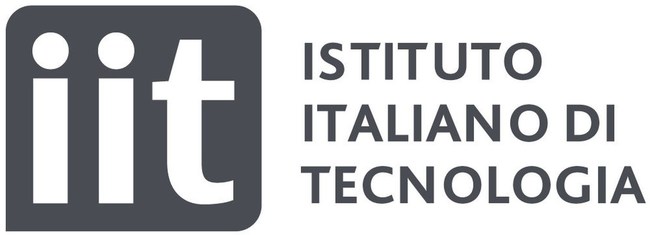
Istituto Italiano di Tecnologia – IIT, Via Morego, 30, 16163 Genova GE, Włochy

The Bruno Kessler Foundation (FBK) and its Center for Scientific and Technological Research have more than 400 researchers, conduct studies mainly in the fields of Information Technology, AI, Sustainable Energy, Sensors and Devices, Cybersecurity, Digital Society and Digital Industry. The Bruno Kessler Foundation aims for excellence both in fundamental research for the advancement of knowledge and in more mature fields of science and technology that allow for a greater and more immediate impact economic and social. The mission of the Bruno Kessler Foundation can be summarized in two main points: Excellent scientific research and Impact on society. Fruit of over half a century of history, through 11 centers dedicated to technology and innovation and the human and social sciences.
https://www.fbk.eu/en/about-fbk/
Fondazione Bruno Kessler (BKF), Via Santa Croce, 77 – 38122 Trento, Italia
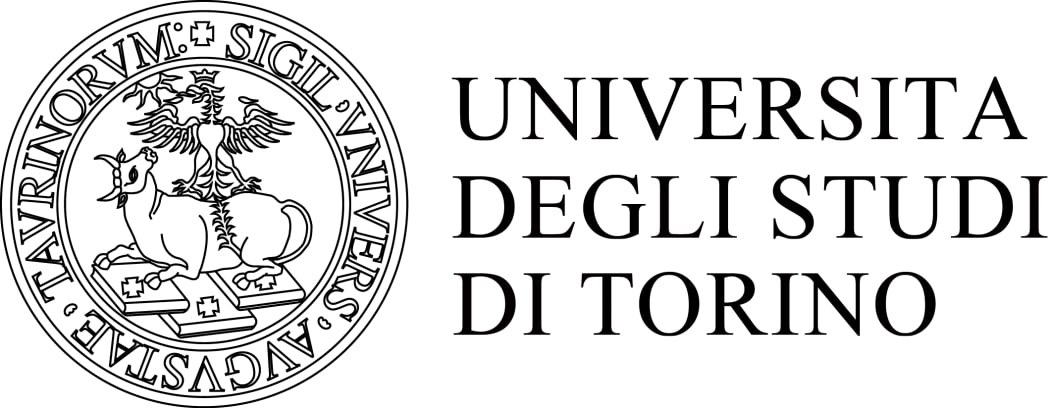
The University of Turin is a public research university. It is one of the oldest universities of Europe and continues to play an important role in research and education. Its research centers in Diagnostic Medicine, Biosensoristics and Nanotechnology are among the best in Italy. The University of Turin promotes the enhancement and commercialization of research results by transferring innovations to industry.
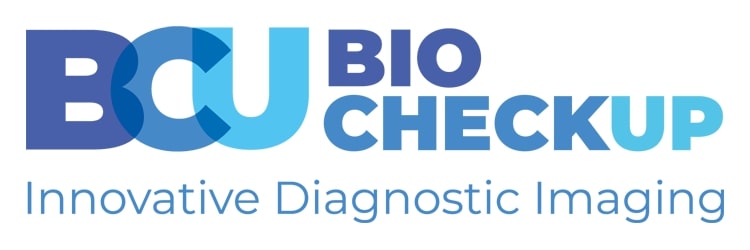
Bio Check Up (BCU) is an Italian SME based in Naples (Italy) with a long experience in radiological evaluations. BCU provides professional advice, assistance and research in healthcare sector, with the aim of supporting clinical decision-making processes. Why we are part of EIT Health Bio Check Up responds to the strategic objectives of EIT Health and, in particular, works on: strengthen health systems in Campania, Italy and Europe, promote better health of citizens, contributing to a sustainable health economy in Europe, equity of access high specialization and share ideas, cooperate on multiple levels and develop cutting-edge research projects. What we are currently looking for is the opportunity to establish collaborations between local, national and international partners and local/national governments and promote high quality research and innovation in the healthcare sector, especially in medical imaging and nuclear medicine.
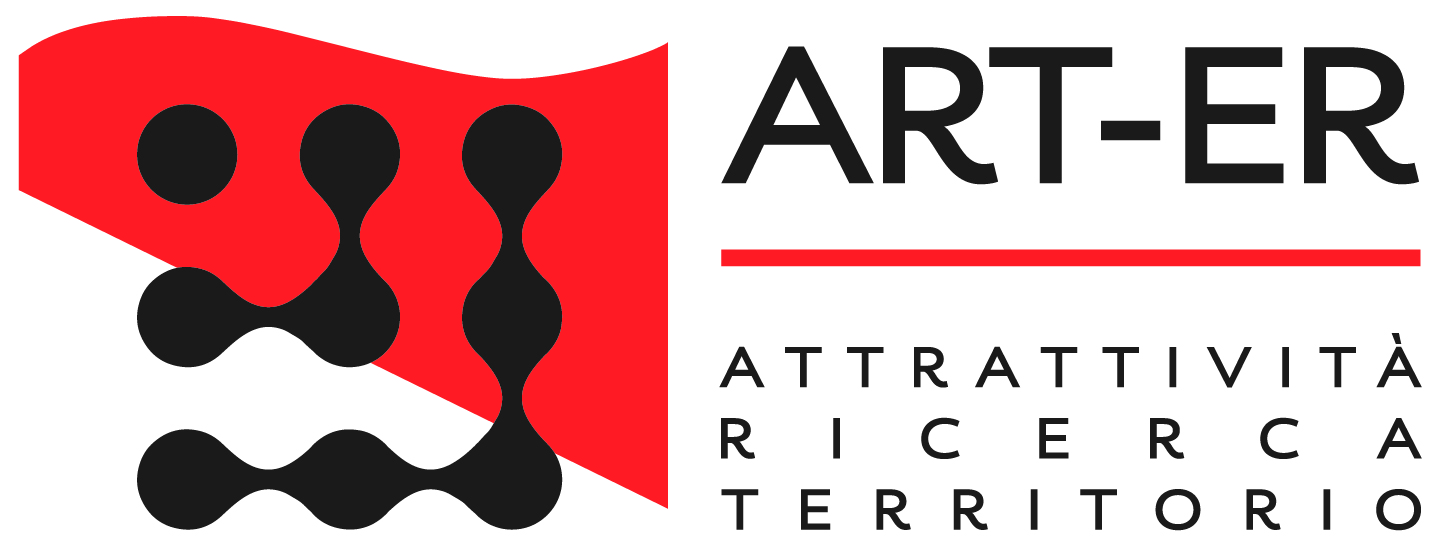
ART-ER Attractiveness Research Territory is a society that promotes sustainable growth by developing innovation and knowledge, attractiveness and the internationalization of the Emilia-Romagna region, Italy. With more than 100 startups that they bring innovation to the health sector, some of the most relevant third party companies sector operating in caregiving, the protagonists of the health and well-being sectors (from the Biomedical Valley of Mirandola, the Wellness Valley of Rimini and Pharmaceutical Automation District of Parma), 4 university hospitals and 5 IRCCS (treatment and research hospitals), ART-ER is the entry point for cooperation with the regional health system, best performer at national level.
https://it.art-er.it/chi-siamo/
Via P. Gobetti, 101 40129 – Bologna, Italia
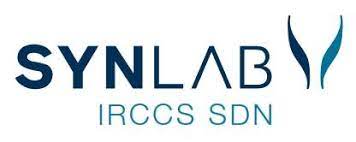
IRCCS SYNLAB SDN is a research Institute accredited by the Italian Ministry of Health (IRCCS) to carry out applied research on diagnostics. Based in Naples, It promotes an integrated, patient-centered, approach to the use of medical imaging and laboratory experiments. Thanks to the vast technological equipment and the skills and quality of the human resources involved, every year about 100,000 in-vivo imaging examinations are acquired, mainly CT, MR and PET, and one million in-vivo exams, which mainly includes laboratory and molecular diagnostics. Furthermore, the presence of a Biobank certified by BBMRI, allows the collection and storage of biological samples that can be linked to the imaging data. Given the amount of diagnostic data produced, characterized by high heterogeneity, to manage and process such complex information in an appropriate manner for better diagnostic efficiency and accuracy, the research of SYNLAB SDN addresses the challenges of digital application for the healthcare improvement, including big data and Artificial Intelligence approaches.